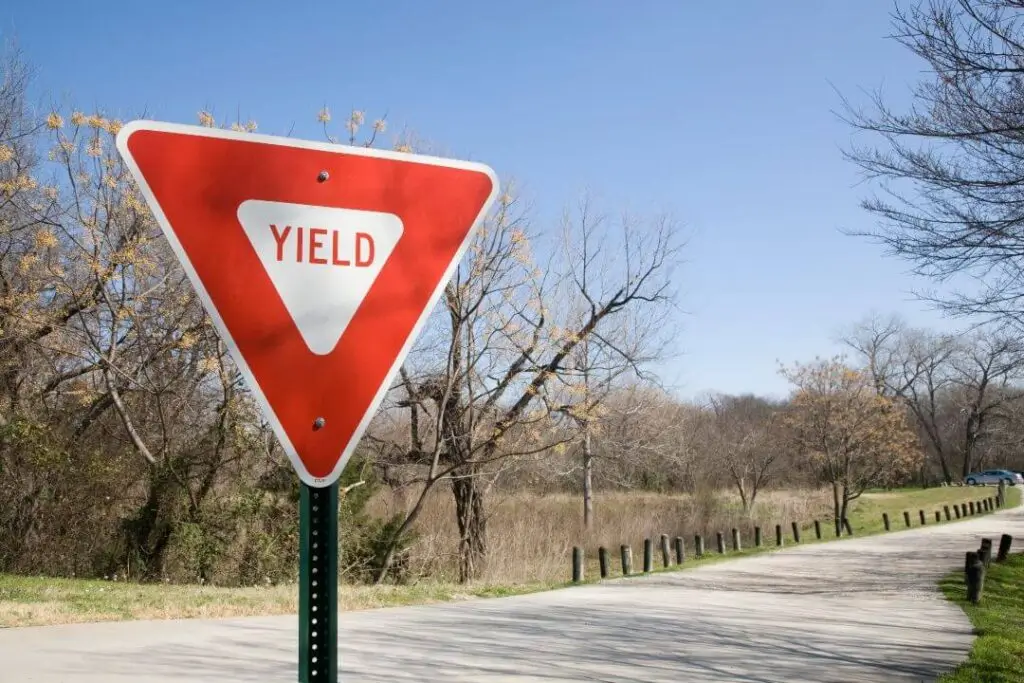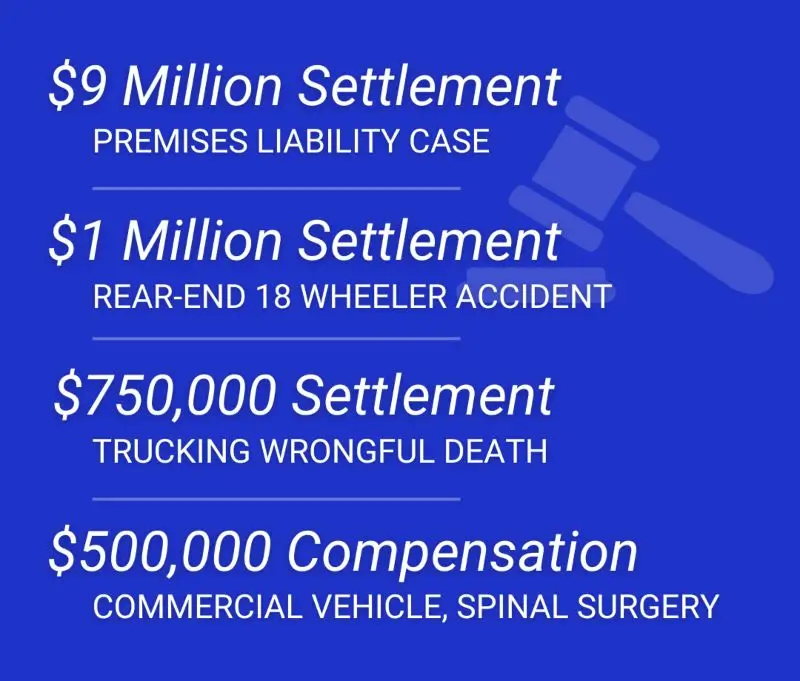The traffic laws in Texas outline the instances when drivers need to yield to others. Ignoring these laws can lead to severe accidents resulting in injuries.
Here, we’ve highlighted some of the primary right-of-way regulations to ensure the safety of pedestrians, bicyclists, drivers, and yourself while on the road in the Lone Star State.
At the Nava Law Group in Houston, TX, our car accident attorneys are dedicated to safeguarding the rights of accident victims. If you’ve suffered an injury, our team will thoroughly investigate your claim and advise you on whether pursuing legal action can help you obtain compensation. Schedule a complimentary consultation today, with no strings attached.
Reach out to us at 713.661.9900, and we’ll promptly commence the handling of your claim.

What is the Right-of-Way Law in Texas?
There are several scenarios where you need to know who has the right-of-way on the road. Pedestrians, bikers, and other drivers share the road with you, and everyone has a different responsibility to follow. Here’s a list of some common right-of-way situations:
- Pedestrians in a crosswalk: If you see a pedestrian crossing a street on a crosswalk, you are required to yield to them. Even if there is no marked crosswalk, the law considers any intersection where two streets meet to be a crosswalk.
- Four-way stops: At an intersection with stop signs at all corners, each driver must come to a complete stop before proceeding. The driver who arrives first has the right-of-way. In case multiple drivers arrive at the intersection at the same time, the driver on the farthest right has the right-of-way.
- Uncontrolled intersections: In the absence of any traffic signs or signals controlling the intersection, drivers are required to yield to any vehicle approaching from the right.
- Emergency vehicles: When an emergency vehicle, such as an ambulance or firetruck, approaches with lights and sirens, you should move your vehicle to the right and stop until the emergency vehicle passes. If you are already in an intersection, you should move through the intersection before pulling over.
- Left turns: While making a left turn, you are required to yield the right-of-way to any vehicle approaching from the opposite direction.
Understanding the Consequences of Not Following Right-of-Way Laws in Texas
As a driver, it is your responsibility to follow traffic rules and laws, including right-of-way laws. These laws are put in place to prevent accidents and ensure the safety of all road users. Not following these laws can result in severe consequences, including legal penalties and personal injury lawsuits. Here are some of the penalties for not following right-of-way laws in Texas and the importance of obeying them.
Drivers Can Receive a Traffic Ticket for Violating the Law
The first penalty drivers can face for failing to follow right-of-way laws is getting a traffic ticket. In Texas, the offense is punishable by fines and could range from $175 to $500 depending on the gravity of the situation. If you are involved in an accident, the ticket amount could increase further, and it could also reflect on your driving record if found guilty in a court of law.
It Could Reflect on Your Driving Record and Increase Your Insurance Rate
Another consequence is that your driving record could be affected, and your insurance company could increase your rates following the violation. Drivers with poor driving records are considered high-risk drivers and are likely to pay higher premiums for their auto insurance. This increase can be overwhelming and could stay with you for up to three years.
You Could Be Liable in a Lawsuit
One of the most severe consequences of not following right-of-way laws is that you could be held liable for personal injuries or property damage caused by your actions. If you fail to yield, an accident could occur and cause personal injury or property damage to the parties involved. In such a case, the parties involved could file a personal injury lawsuit against you, and you would be held accountable for all damages caused.
Penalties Could Be Higher for Professional Drivers
Professional drivers, such as truck drivers, can face more severe penalties if they violate right-of-way laws. In addition to receiving a traffic ticket, they could face suspension of their commercial driver’s license, which could impact their livelihood. Drivers who depend on their commercial vehicle to make a living will feel this type of penalty more than others. It is, therefore, crucial for professional drivers to follow right-of-way laws to avoid such severe consequences.
It is Essential to Seek Legal Advice Following a Violation
If you have been cited for a right-of-way violation, it is essential to seek legal advice from an experienced attorney immediately. An attorney can provide guidance on how to defend your case and reduce the potential penalties. They can also work to negotiate your fines and penalties to keep them as low as possible. Seeking legal advice is imperative to prevent the situation from escalating into something more severe.
The Nava Law Group Can Help You Navigate Right-of-Way Laws in Texas
It is important to be informed about Texas right-of-way laws in order to stay compliant. Understanding the existing laws and best practices for interaction with other drivers can help keep roads safe. Always pay attention to your surroundings and yield when appropriate. Additionally keep in mind that distracted driving is a rising source of traffic collisions. With this knowledge, you’ll be on the road to success! If you have any further questions or need legal assistance, please contact Nava Law Group in Houston at 713.661.9900 so we can help guide you through any legal issues related to Texas right-of-way rules and regulations. Let us be your key source of information today and watch as our resources will assist you on your path! So don’t wait, get informed about the right-of-way rules today and stay safe out there!








